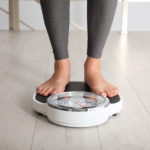By Bonnie Jenkins
If you’ve been diagnosed with Crohn’s disease, or know someone who has, then you probably already know that living with this chronic disorder is challenging.
Crohn’s disease is a chronic disorder that causes inflammation of the digestive tract. A related disorder – ulcerative colitis can cause ulcers and open sores in the colon. The two of these disorders combined affect about 1.4 million Americans, according to the Crohn’s & Colitis Foundation of America.
Unfortunately, there’s still no cure for either of these inflammatory bowel diseases. But there are steps you can take to keep symptoms in check.
The first step—knowing what you are up against. Crohn’s and ulcerative colitis can afflict people of all ages, although these diseases tend to present themselves when people are in their teens or early 20s.
The typical symptoms of Crohn’s disease include:
- Abdominal pain
- Diarrhea
- Rectal bleeding
- Appetite loss
- Weight loss
- Fever
- Nausea
- Vomiting
- Perianal discomfort—itchiness or pain around the anus
And the 3 characteristic symptoms of ulcerative colitis are:
- Persistent or recurrent diarrhea that can be bloody or full of mucus
- Abdominal pain and cramping
- Fever
But symptoms aren’t consistent in everyone—and they can come and go depending on diet and stress levels. This makes diagnosing either type of inflammatory bowel disease (IBD) very difficult.
If you’ve been diagnosed with Crohn’s or ulcerative colitis, most doctors recommend medication. Indeed, many of those with IBD are told by their doctors that this is the only way they can control the disease. But that’s simply not true. Because Crohn’s and ulcerative colitis are both autoimmune diseases, it’s critical to control inflammation. And that can often be accomplished with diet and supplements.
What you eat is perhaps the single biggest factor in taming IBD symptoms. Many people find that certain foods make matters worse. These trigger foods can include high fiber foods like seeds, nuts, popcorn, raw fruits and vegetables, and leafy greens; greasy or fried foods; products that contain caffeine; alcohol; dairy products; and spicy food. Eating a trigger food can bring on a bout of abdominal discomfort and quickly send you in search of a restroom.
Are You Suffering From...
- Love handles and a pot belly
- Romance that isn't what it used to
- Forgetfulness and inattention
- Low (or no) strength and endurance
- A sex drive that's shifted into neutral...or worse
If so...you may have Mature Male Burnout. Click here to discover more about this unique condition and what you can do about it.
But, even though people with IBD may need to avoid certain foods, they still need an adequate intake of calories and nutrients. Complex carbs should make up 50 percent of caloric intake. Between 25 and 30 percent of the diet should come from lean protein sources such as meats, fish, poultry, eggs, smooth nut butters and soy. Five to nine servings of fruits and vegetables are recommended daily. Those best tolerated include cooked butternut squash, carrots, asparagus, spinach and sweet potatoes. Healthy fats from flaxseed oil, fish and olive oil should make up the remaining 20-25 percent of total calories.
Supplements can also help. Topping the list is a high potency multivitamin complex. For best absorption, opt for a liquid whole foods supplement that contains a wide variety of vitamins, minerals and phytochemicals. Calcium is also important. Daily calcium intake should be at least 1,500 milligrams, taken in three divided doses.
It’s not unusual to have low levels of certain nutrients if you have IBD. Since almost 70 percent of people with Crohn’s are deficient in vitamin D, it’s important to have your levels checked. If you are low, it’s wise to take 1,500 to 2,000 IU of supplemental D each day. Folic acid deficiency is also common in patients with IBD, particularly those taking the drug sulfasalazine.
Because people with ulcerative colitis may be at a higher risk of colon cancer, most naturopaths recommend taking 800 mcg. of folic acid to help reduce the risk.
Because fatty acids have been shown to reduce the inflammatory response associated with IBD, it’s also important to take 3 to 4 grams of fish oil daily. Soothing anti-inflammatory herbs, including like boswellia, slippery elm and turmeric have also been shown to benefit those with Crohn’s.
If you suffer from the symptoms of Crohn’s, ulcerative colitis or other inflammatory bowel problem, consider these natural approaches before bombarding your body with pharmaceuticals. Tweaking your diet and adding anti-inflammatory supplements might be enough to calm that angry colon and help prevent those emergency bathroom runs.
References:
Ballesteros Pomar MD. Impact of nutritional treatment in the evolution of inflammatory bowel disease. Nutricion Hospitalaria. 2010;25:181-192.
Jørgensen SP. Clinical trial: vitamin D3 treatment in Crohn’s disease – a randomized double-blind placebo-controlled study. AlimentaryPharmacology & Therapeutics. 2010;32:377-383.
Razack R. Nutrition in inflammatory bowel disease. Current Opinion in Gastroenterology. 2007;23:400-405






